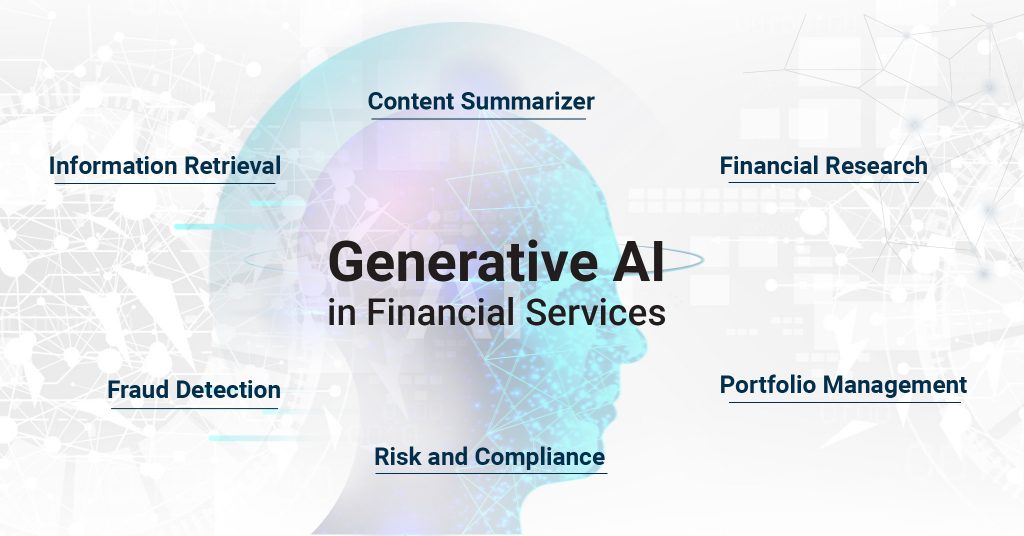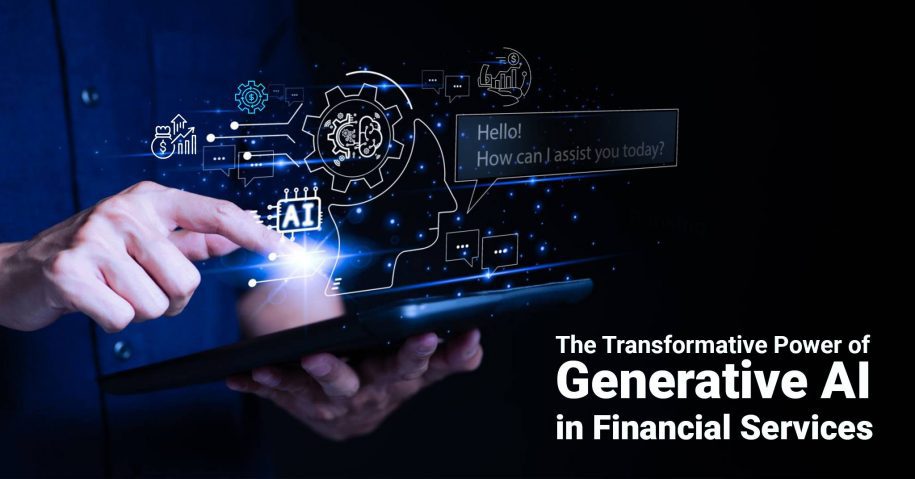In a state of flux world of finance, staying ahead of the curve is inevitable for success. One technology that is set to revolutionize financial services is generative artificial intelligence (AI). By harnessing the power of large language models like ChatGPT, the financial industry can turbo-charge investment research, portfolio management, client servicing, and more.
In a recent survey, nearly 30% of white-collar professionals, including those from top banks like Bank of America and J.P. Morgan, have embraced OpenAI’s Chat GPT and other AI programs. Generative AI, led by Chat GPT, is transforming finance by generating content like text, images, and music using simple prompts. With a projected 10% contribution to all produced data by 2025, generative AI’s impact is substantial.
Chat GPT, renowned for its conversational capabilities and versatility, has surpassed other breakthrough apps with 1 million worldwide downloads in just 5 days. Join us as we delve into how generative AI, particularly Chat GPT, is revolutionizing financial services and applications, uncovering its potential benefits, and discussing its various use cases.
What are Generative Adversarial Networks (GANs)?
Generative AI operates on the principle of Generative Adversarial Networks (GANs). GANs consist of two neural networks
- Generator
- Discriminator
The generator generates synthetic data, such as text or images, while the discriminator evaluates the authenticity of the generated data. Through an iterative process, the generator improves its output to fool the discriminator, resulting in increasingly realistic and high-quality synthetic data.
GANs revolutionize financial services with accuracy and efficiency by generating high-quality data and improving contextual understanding. They have become invaluable tools for the finance industry.

Ways Generative AI is Used in Finance
1) Information Retrieval
It can enhance information retrieval systems in finance by providing more accurate and relevant search results. By training large language models like ChatGPT on vast amounts of financial data, users can extract valuable insights from unstructured data sources quickly and efficiently.
2) Content Summarizer
Financial professionals often deal with vast amounts of textual information. Generative AI can be used to develop content summarization tools that automatically condense lengthy reports, research papers, and news articles into concise and digestible summaries. It saves time for analysts and helps them focus on extracting key insights.
3) Generative AI for Portfolio Management
Portfolio managers strive to identify the optimal mix of assets for their clients. Generative AI can assist in analyzing historical data, market trends, and client preferences. By leveraging large language models, portfolio managers can gain deeper insights into the potential risks and returns associated with different investment strategies.
4) Financial Research
In finance, routine analysis of financial accounts, business filings, and earnings call transcripts is critical. Generative AI can automate this process, freeing analysts’ time for more complex tasks. Large language models can extract relevant information, identify patterns, and generate comprehensive reports quickly and accurately.
5) Sentiment Analysis
Understanding market sentiment is necessary for making sound investment decisions. Generative AI can analyze large volumes of textual data from social media, news articles, and online forums to gauge market sentiment. Financial professionals can make more informed trading decisions by accurately interpreting the sentiment.
6) Fraud Detection
Generative AI, mainly through GANs, can aid in fraud detection. AI models can more effectively identify suspicious transactions and patterns by creating synthetic data that resembles real data. It enables financial institutions to detect and prevent fraudulent activities, safeguarding the financial system’s integrity.
7) Risk and Compliance
Generative AI can be vital in identifying patterns, trends, and anomalies that may indicate potential risks. AI models can assist in compliance monitoring, early warning systems, and risk assessment by analyzing vast amounts of financial data, including transaction records and market behavior.
Pros and Cons of Generative AI
Pros:
- Better quality (and more) training data: It requires large amounts of high-quality training data, and advancements in data collection techniques and data-sharing platforms have made this more accessible in recent years.
- Improved contextual understanding: ChatGPT can understand and generate contextually relevant responses, enabling more natural and engaging user interactions. It improves the overall user experience in financial applications.
- Accuracy: These models can analyze vast amounts of data quickly and accurately, leading to more reliable predictions and insights. It can help financial professionals make more informed decisions and reduce potential errors.
- Focus on data privacy and security: As the financial industry deals with sensitive information, implementing generative AI must prioritize data privacy and security. Robust measures should be in place to protect confidential financial data from unauthorized access or misuse.
Cons:
- Ethical concerns: Generative AI raises ethical considerations, such as the responsible use of AI-generated content and the potential for bias in training data. Transparency and accountability must be maintained to ensure the ethical application of AI in finance.
- Reliance on high-quality training data: Its success largely depends on the quality and diversity of training data. Biases or inaccuracies in the data can affect the output and limit the model’s effectiveness.
- Interpretability challenges: They often need more interpretability, challenging understanding the reasoning behind their decisions. It poses challenges in compliance, regulatory requirements, and explaining AI-generated outputs to clients or stakeholders.
Bottom line
Generative AI, powered by large language models like ChatGPT, holds immense potential to transform financial services. While inherent challenges and ethical considerations exist, It’s the benefits make it an invaluable tool for the financial industry. As it continues to evolve, financial institutions must embrace this technology responsibly, ensuring transparency, accountability, and a focus on data privacy and security. By harnessing the power of Generative AI search, professionals can unlock new possibilities and stay ahead in the ever-evolving finance landscape.
Join the forefront of this transformative era, where generative AI shapes the future of finance with ingenuity and precision.


Leave a Reply